On the eve of his receiving the highest French civilian honour on Saturday night, the Legion d'Honneur, Bachchan let his mind roam—to his forthcoming films, his career, his son and even the state of the nation.
He refuted the suggestion that Nishabd, where he plays the role of an older man attracted to a very young woman, is a remake of Nabokov's Lolita. Asked if Amitabh Bachchan as Gabbar would get to speak the immortal lines, "Ab tera kya hoga Kaalia?'' he was not forthcoming, but expressed optimism that Ram Gopal Verma's Sholay "may become the byword for future Sholays''.
The film legend said that he fully understood what Brand Bachchan is all about commercially, but refused to put an economic value on it. Asked about recent estimates that put it at Rs 700 crore, Bachchan scoffed, "That's too little.'' 😲
Indrani Bagchi & Subodh Ghildiyal | TNN
New Delhi: If humility is the hallmark of greatness, Amitabh Bachchan is its brand ambassador. But even this entertainment legend is not immune to pulls of competition and rivalry. With the Shah Rukh Khan-Big B rivalry virtually the subject of prime time debate, Bachchan made light of the suggestion that he faced any challenge when The Times of India caught up with him at the New Delhi residence of his friend, Amar Singh. In true Bachchanesque fashion, he said competition only propelled him to greater heights so Shah Rukh could "copy" him. Touching upon everything from his role in Nishabd and Sholay to his belief that India was on the threshold of excellence, the Big B epitomised what the French government recognised as well – a Legion d'Honneur.
Q. You were recently voted the Man of the Year by The Times of India poll. Why do you think your charisma endures across generations?
A. I am honoured and humbled by people of this country, the love and affection that they continue to shower on me, although I believe I am undeserving of this honour. I fail to understand why people put me in this exalted position. I leave that to those wonderful polls that you conduct from time to time.
Q. Your appeal was strongest in a very different India. In a 21st century India which is poised for double-digit growth, what is the secret of your appeal?
A. It is the state of the nation and the circumstances, which will guide what you are like, what you wear, what you do, etc. In the 70s, when you talk of the Angry Young Man — it was not something I had designed, but it was perhaps a feeling that the nation and the circumstances at the time needed to be told — that the system was not performing. There was dissatisfaction and a need for a rebel to stand up. It is nothing unique, it's a universal phenomenon.
If you look at the democratic upsurge in China, you remember that picture of the lone young man standing before a tank (on Tiananmen Square). It was a lone man's challenge to the might of Communism, and it swept through the world.
Today, things are different. The system works —or supposedly works. It is economic progress that is the new benchmark. Those issues are non-existent, the rebel of those years is now 64 and it is commercial success that counts. So roles are designed accordingly, and they are appreciated because they reflect the times.
Q. How does it feel to get the Legion d' Honneur after Satyajit Ray and Ravi Shankar?
A. I don't think I am worthy of being in the distinguished company of Satyajit Ray and Ravi Shankar. I am greatly honoured that the French government thinks I deserve it. I still believe I am undeserving, but nevertheless, I am deeply grateful. But I am happy because this is an honour for the Indian film industry.
Q. How do you evaluate the Big B brand... recent estimates say that with Aishwarya Rai in the family, the B brand is worth no less than Rs 700 crore. How do you see the brand evolving and do you think the brand is enhanced with Aishwarya joining it?
A. As an economic assessment, I think the value is too less. What you are doing is putting a price on an individual. Human beings can't be valued in money terms, whether it's Amitabh Bachchan, Abhishek, Aishwarya or anyone. I don't understand the word "brand" though I understand it's the new commercial lingo. My value is with my family — I look at Amitabh, Jaya, Abhishek, Aishwarya and Amar Singh🤢 as family — I don't believe in 'brand'. Of course, if commerce is involved we are all actors in the business of acting and we will look at this commercially — Aishwarya, Abhishek and I.
Q. You faced competition from a 40-yearold Shah Rukh Khan. With the success of Guru, the competition is said to be coming closer home, from 30-year-old Abhishek?
A. I would love to compete with Abhishek. And when we are in front of a camera both Abhishek and I are actors so, in a sense we are competitors. (Forget competition..Big B has proclaimed he has lost to ABhishek,so no more competition😆)
Competition propels and provokes you, that somebody is around the corner. I would like to see Shah Rukh as an inspiration. I want to do better, make better films, so he can copy me. 😕
Q. Have you seen Shah Rukh's KBC? Can you tell the story behind your exit?
A. I chose to be out of it.
I suddenly took ill, and when I came back it took me time to build confidence. So I told Sameer Nair it would not be possible for me to do the show. I did about 350 shows at a trot which is unprecedented
in the history of Millionaire. In the 80-90 countries where it runs, they have it in seasons, which they are doing now, so the fatigue factor does not come in. When you do two episodes a day there is bound to be a sense of monotony. There is a fundamental reality. The format of the game cannot be changed. You can change the frills — the background colours, the jokes, the sermons. But the format remains the same. That was becoming monotonous. I felt I was becoming mechanical. As an artiste, I needed to have the butterflies in my stomach — that had stopped. (If its true,then good..But to me looks more like a case of sour grapes😉)
Q. Is there a rivalry between you and Shah Rukh?
A. No, what rivalry? He is 25 years younger than me. Why do they talk of such competition?
Q. Is it true that you asked Karan Johar to insert "Rock and Roll, Soniye" because the script was...
A. (Cuts short)... No no. You don't ask Karan Johar for anything — you just sit quiet and obey.
Q. You play Gabbar in the remake of your greatest movie, Sholay. What memories does it bring back?
A. I enjoyed it immensely. When I was first shown the script in 1973, I liked that role and I wanted to do it. Even on our way to the location on the first day, I kept pestering Ramesh Sippy, "Please give me that role." He didn't, so in a way, this was assuaging a deep sense of frustration.
When Ram Gopal Verma asked me to do the role, I jumped at the opportunity. It is his take on Sholay, whether it is imitative or not, we will see. It is a healthy creative process – because it is Sholay as interpreted by Ram Gopal Verma.
Q. Do you have the same dialogues? The songs – is there a "Jab tak hai jaan"? I won't tell you. Yes, that is there.
Positive side. There is no lascivious or sensuous portrayal as is being speculated. It is an honest, stark portrayal of a very awkward situation, and in the world we are in there can be such situations.
Q. To move to Abhishek, many said the script was loaded in favour of Hrithik in Dhoom II. Do you regret Abhishek doing the role?
A. I am happy and proud he did it. It showed his commitment to the script, the film, his relationship with Adi Chopra who had asked him to do the film. Even knowing that his role was miniscule, he did the role to keep the brand Dhoom alive for future episodes.
What I did not like was director Sanjay Gadhvi's criticism after the film that Abhishek was finished, a spent force. I found it very lowly that a director should denigrate his own artiste, his family. If you do not like him, don't work with him. Criticising Abhishek despite knowing that Hrithik had a bigger role was what I did not approve of.
What I appreciate is Abhishek stuck around and proved wrong all those cynical about him. That is what he did in Guru.
Q. How do you rate Guru?
A. It's a great film. There's a technical side and an emotional side. It's an uplifting experience and that is its success. My son-in-law has booked seats for all his staff at Escorts and he reported that afterwards their approach to problems became different. "We can do it, boss," became the refrain. That's good.
Q. Abhishek has been doing many diverse roles lately. Would he have liked to do as many..
A. I would say I was not as adventurous when I was that age. The decision-making process was tough – you don't know what, where will be appreciated – and suddenly Zanjeer happened. And then all started designing films around it – because we all fear commercial failure. Also because I was going away from what my family did, I was a sort of pioneer in my field. So I took less risks. The writers were equally protective, and let's accept it, it worked.
Now I am no longer the leading man, I play character roles, I don't affect the outcome of the film. I can take more risks – I'm enjoying myself more.
Abhishek, on the other hand, is taking more risks – normally he should be just doing Bunty aur Babli and Dhoom.
Q. When is the Abhishek-Ash wedding?
A. We have no dates yet. The families will decide then we will let you know.
Q. When did you know that a wedding was in the air?
A. After the New York premiere of Guru, Abhishek called me just before getting on the plane to say he had proposed and Aishwarya had accepted. The premiere in both Toronto and New York was unbelievable. In both cities, the halls chosen only show Hollywood films. But the crowds, the response...was very different.
Q. You have repeatedly ruled out your return to politics. But you are seen to be close to one particular political party. You are endorsing SP advertisements albeit indirectly. Do you intend to formalise this, and do you have a comment on the forthcoming elections in the state?
A. First, I will not make it formal. I stick to what I said when I left politics, that I will not come back. I have never campaigned for a political party and never said anything political. Yes I have done a campaign for UP. It's my home state and I am its brand ambassador appointed by the UP Development Council. Today, Samajwadi Party is in power, but tomorrow if another party came in and asked me to do this, I will.
Q. There is a mega poll coming up in UP...
A. Is there?
Q. What, in your opinion, would be a desirable result?
A. I'm afraid I do not understand politics and don't follow it.Whatever the people decide. In a way, acting and politics are similar professions, because we wait for the people's verdict every Friday and they wait for for one every five years.
Q. Despite your humility, surely you realise you are the uncrowned king of the Indian film industry....
A. What uncrowned king? I don't realise that and don't make me realise it. 👏(Humility👏)
Q. Because you are larger than life and you touch hearts, and lives...
A. Others do it too. It's also because of the medium – which we all know as escapist and fantasy.
Q. How do you see the Indian entertainment industry in future and your role in it?
A. I hope I can be part of this fraternity and our film industry grows like it is. It is unbelievable. It shows that somewhere we are hitting the right chords. There was great cynicism about the Indian film industry. What is valuable is that we have been able to change cinema without changing anything – everything remains the same, even the language.
That is not what Hollywood does. It becomes German in Germany and Italian in Italy. But wherever we go, our language remains Hindi, our format remains the same. Yet we score. We are touching countries that we never did before. A friend of mine was in Chile recently and they took a boat in a very remote part of the country – the boatmen knew the names of Indian film stars!
Q. How do you look at changes in Indian films, say music, over the years?
A. Things will change with changing times. The language has changed – there is brevity in everything. Keeping that in mind, everything gets changed – earlier there were beautiful lyrics and music which you could sit back and savour. Now people don't have time. That makes the difference.
But, there is a large percentage of acceptance of mediocrity. That is very dangerous. What is not mediocre is very small and comes in the bracket of "elitist". Can we ever do what is small, not because it is elitist but because of a need to
rise above mediocrity?
Maybe it is because we have been subjugated for long by foreign powers so there is a sense of fear in what we do. So remaining mediocre is playing safe. There is this sense of "itna hi karte hain".
There is a great need to rise above mediocrity. I feel India is at the right spot to do this. That is where your (Times of India's India Poised) campaign hits the right note for everyone. This is the time to fly. That's why I chose that location (Mumbai's Bandra-Worli Sealink) for your film – it's modern and it symbolizes the message.
I just feel very strongly about it.





















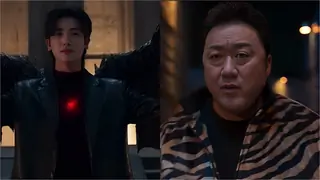
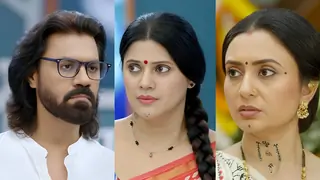


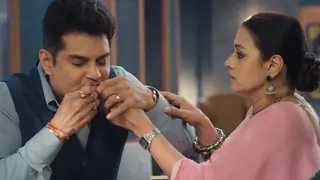

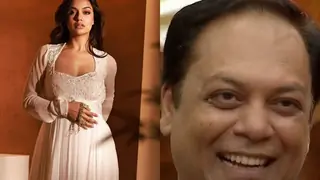

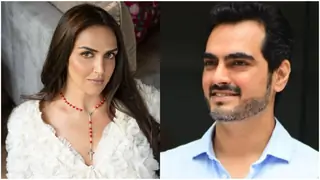

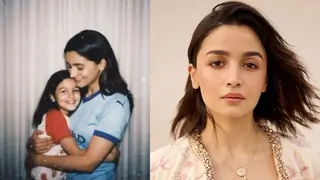


57